When recession turns to depression: Greece's descent into poverty captured in photographs
Rescue funds from the EU and IMF saved Greece from bankruptcy but the austerity and reform policies the lenders attached as conditions have helped to turn recession into a depression
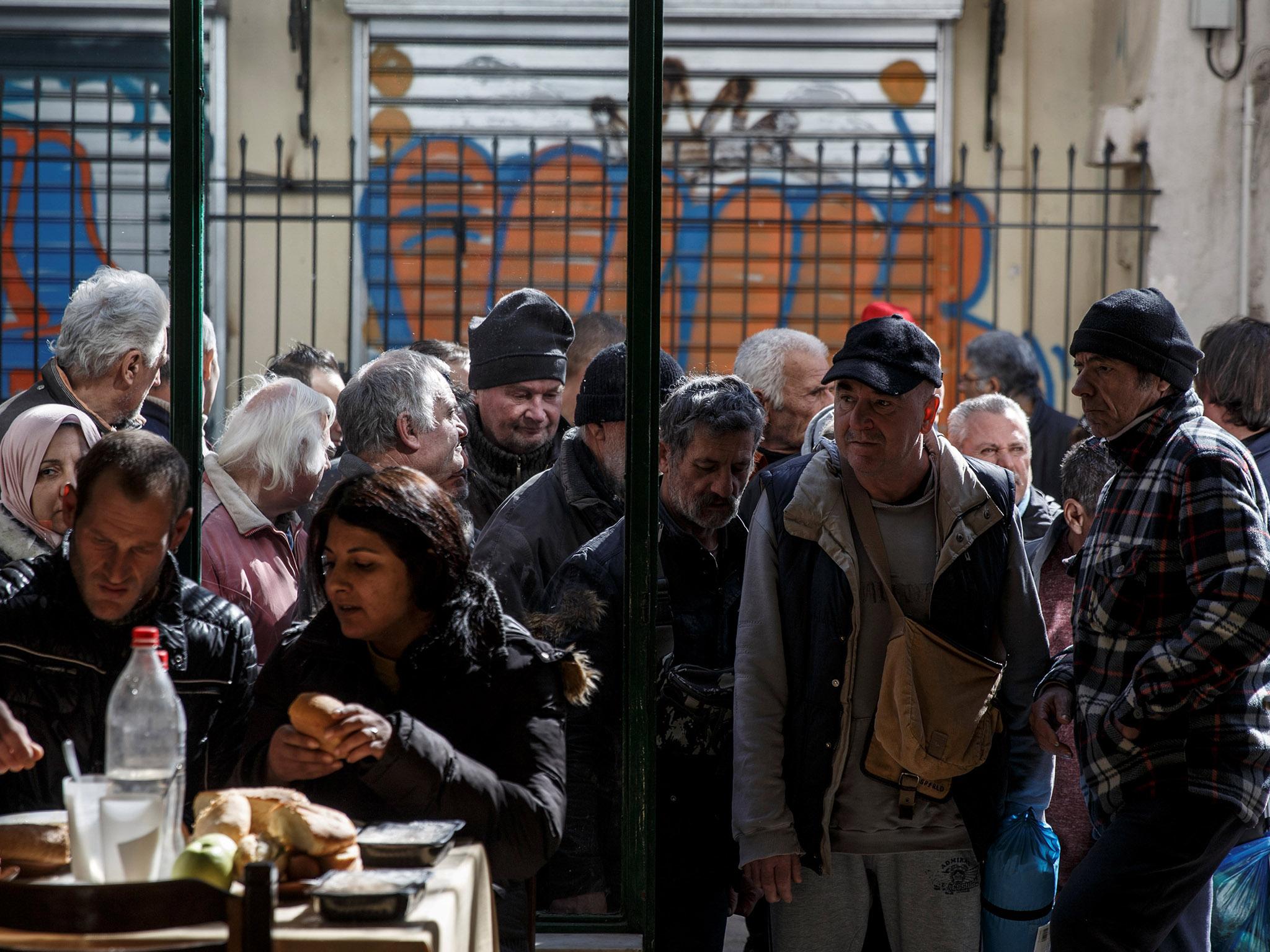
Your support helps us to tell the story
From reproductive rights to climate change to Big Tech, The Independent is on the ground when the story is developing. Whether it's investigating the financials of Elon Musk's pro-Trump PAC or producing our latest documentary, 'The A Word', which shines a light on the American women fighting for reproductive rights, we know how important it is to parse out the facts from the messaging.
At such a critical moment in US history, we need reporters on the ground. Your donation allows us to keep sending journalists to speak to both sides of the story.
The Independent is trusted by Americans across the entire political spectrum. And unlike many other quality news outlets, we choose not to lock Americans out of our reporting and analysis with paywalls. We believe quality journalism should be available to everyone, paid for by those who can afford it.
Your support makes all the difference.Greek pensioner Dimitra says she never imagined a life reduced to food handouts: some rice, two bags of pasta, a packet of chickpeas, some dates and a tin of milk for the month. At 73, Dimitra – who herself once helped the hard-up as a Red Cross food server – is among a growing number of Greeks barely getting by.
After seven years of bailouts that poured billions of euros into their country, poverty isn't getting any better; it's getting worse like nowhere else in the EU. “It had never even crossed my mind,” she said, declining to give her last name because of the stigma still attached to accepting handouts in Greece. “I lived frugally. I've never even been on holiday. Nothing, nothing, nothing.”
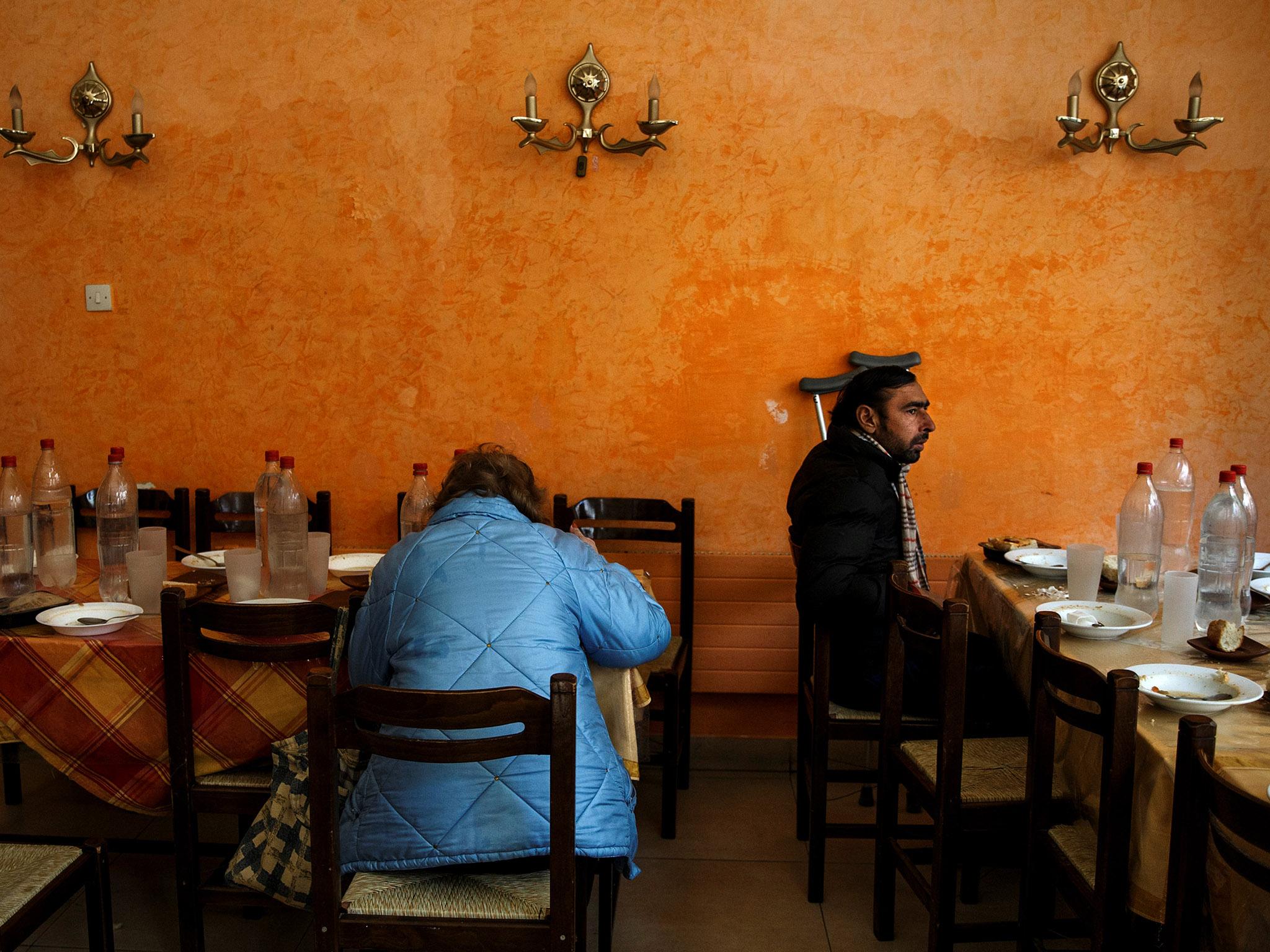
Now more than half of her €332 (£296) monthly income goes to renting a tiny Athens apartment. The rest: bills. The global financial crisis and its fallout forced four eurozone countries to turn to international lenders. Ireland, Portugal and Cyprus all went through rescues and are back out, their economies growing again. But Greece, the first into a bailout in 2010, has needed three. Rescue funds from the European Union and International Monetary Fund saved Greece from bankruptcy, but the austerity and reform policies the lenders attached as conditions have helped to turn recession into a depression.
Prime Minister Alexis Tsipras, whose leftist-led government is lagging in opinion polls, has tried to make the plight of Greeks a rallying cry in the latest round of drawn-out negotiations with the lenders blocking the release of more aid. “We must all be careful towards a country that has been pillaged and people who have made, and are continuing to make, so many sacrifices in the name of Europe,” he said this month.
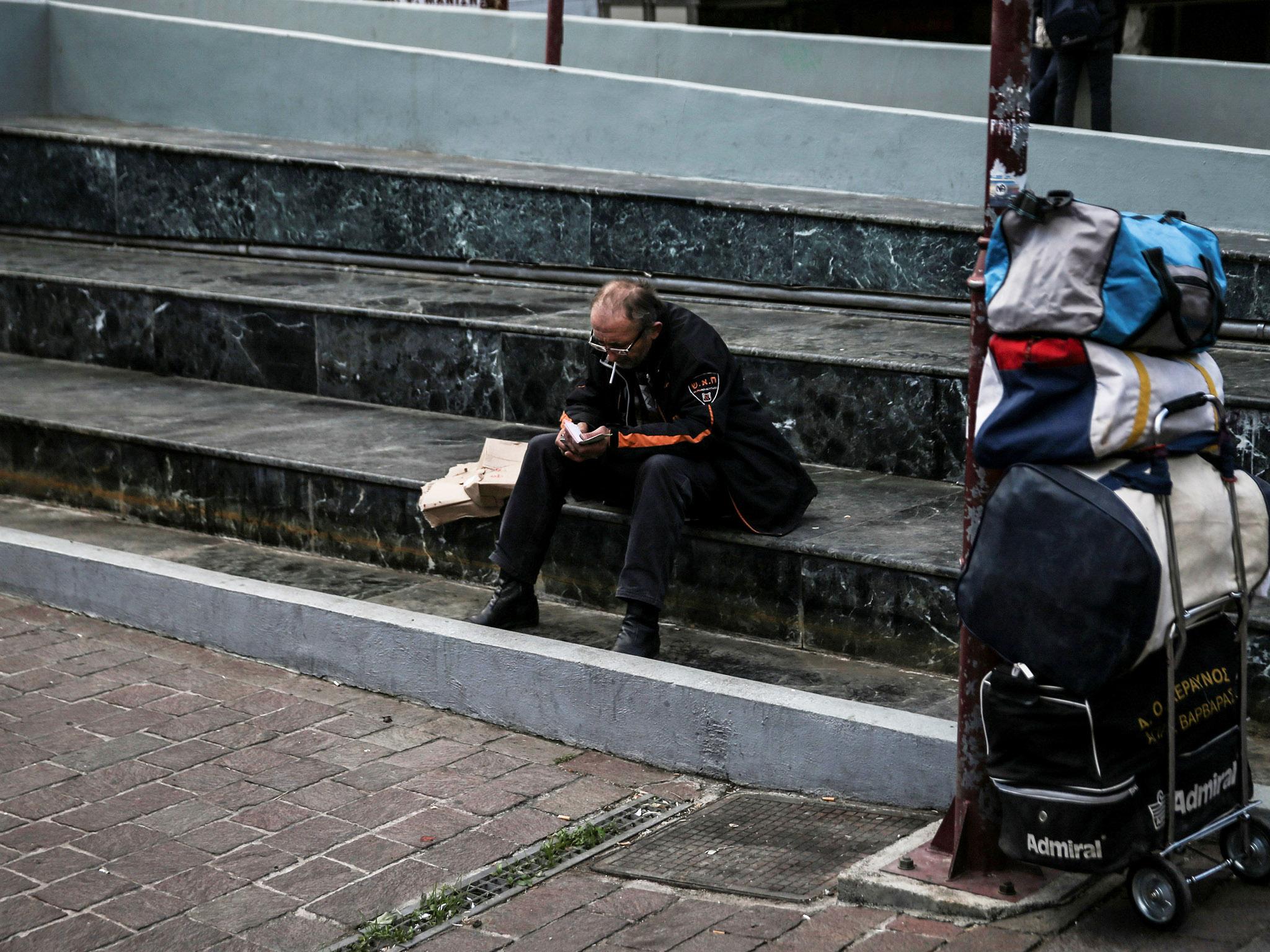
Much of the vast sums in aid money has simply been in the form of new debt used to repay old borrowings. But regardless of who is to blame for the collapse in living standards, poverty figures from the EU statistics agency are startling. Greece isn't the poorest member of the EU; poverty rates are higher in Bulgaria and Romania. But Greece isn't far behind in third place, with Eurostat data showing 22.2 per cent of the population were “severely materially deprived” in 2015.
And whereas the figures have dropped sharply in the post-communist Balkan states – by almost a third in Romania's case – the Greek rate has almost doubled since 2008, the year the global crisis erupted. Overall, the EU level fell from 8.5 per cent to 8.1 per cent over the period.
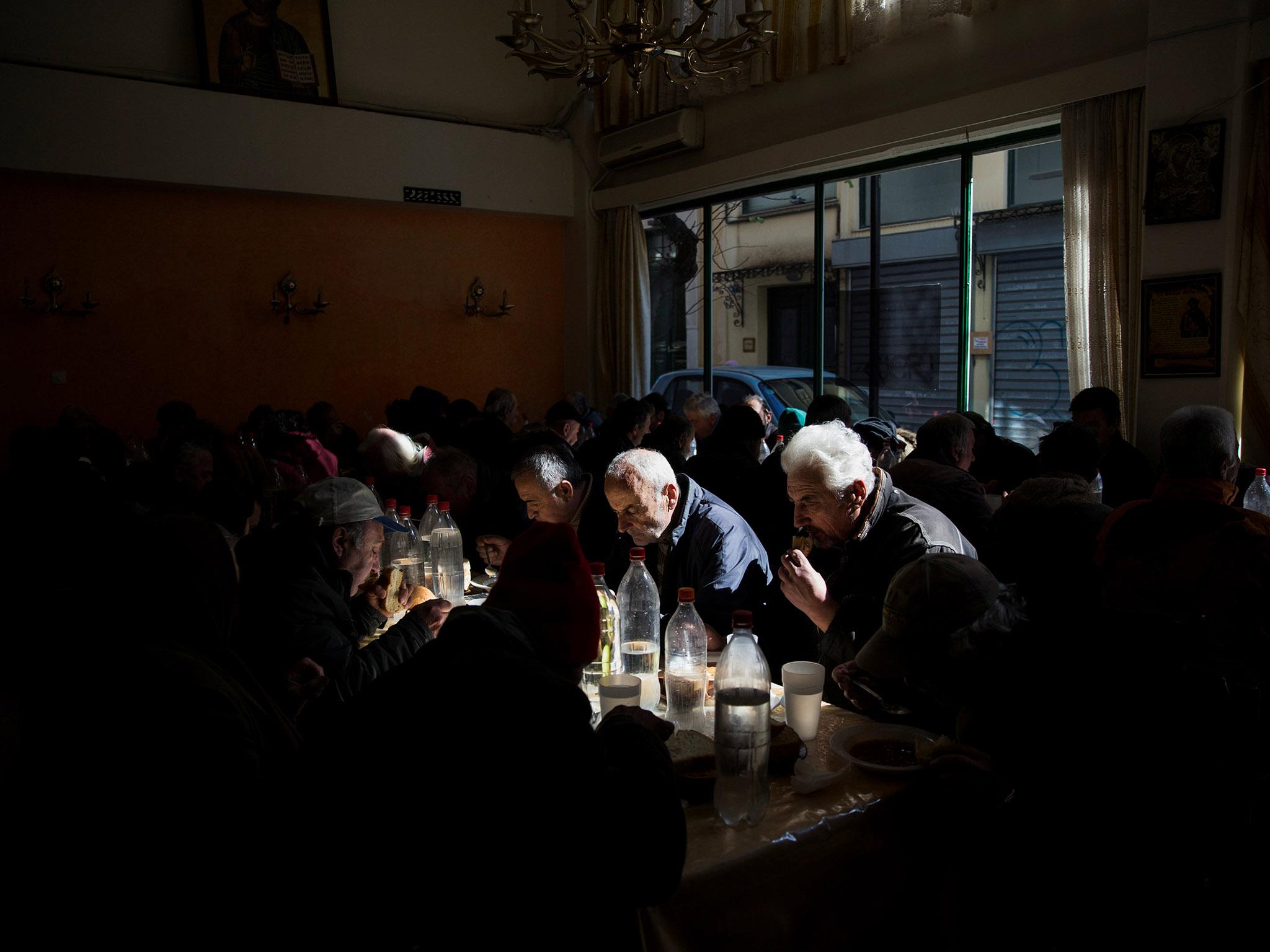
The reality of such statistics becomes clear at places like the food bank run by the Athens municipality where Dimitra collects her monthly handouts. Here, dozens more Greeks waited solemnly with a ticket in hand to get their share. All are registered as living below the poverty line. “The needs are huge,” said Eleni Katsouli, a municipal official in charge of the centre.
Figures for the food bank, which serves central Athens, show a similar trend on a local scale to the wider Eurostat data. About 11,000 families – or 26,000 people – are registered there, up from just 2,500 in 2012 and 6,000 in 2014, Katsouli said. About 5,000 are children. Many of the shelves and refrigerators in its stock room stood empty. What they give away depends on what sponsors – themselves often struggling businesses – can donate.
“We're worried because we don't know if we'll be able to meet these people's needs,” Katsouli said. “There are families with young children and on some days we haven't even got milk to give them.”
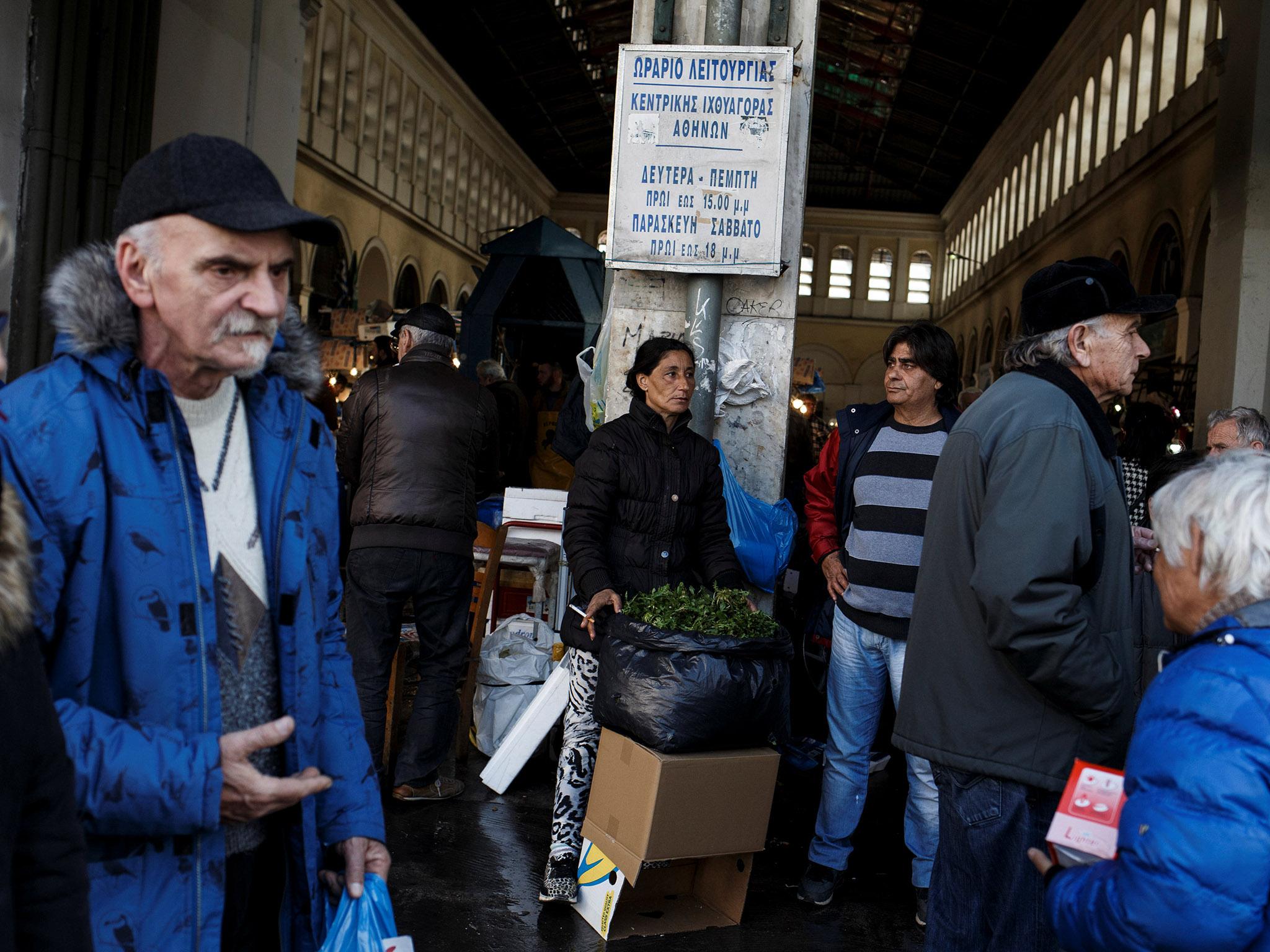
International organisations, including the OECD, have urged the government to prioritise tackling poverty and inequality. Unemployment has slipped from a peak of 28 per cent of the workforce to 23 per cent but the rate remains the highest in the EU. Since the crisis began, the economy has shrunk by a quarter and thousands of businesses have closed for good. Hopes are high the economy can pick up this year but data last week showed it contracted again from October to December after two straight quarters of growth.
Better living standards seem as far away as ever. More than 75 per cent of households suffered a significant income reduction last year, a survey by business confederation GSEVEE and Marc pollsters found. A third had at least one unemployed member and 40 per cent said they had to cut back on food spending.
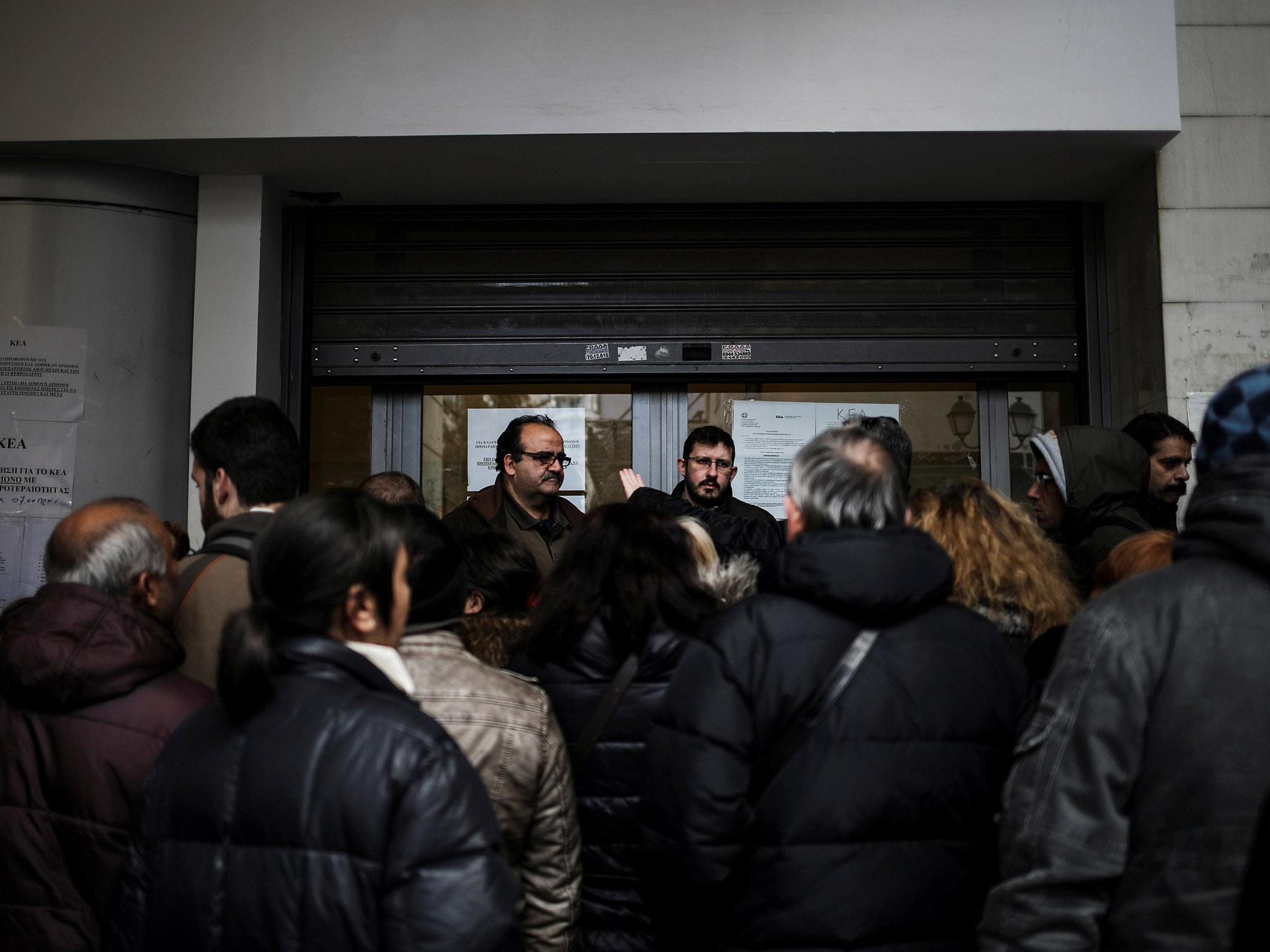
The Greek Ombudsman says a growing number of people struggle to pay utility bills. In a no-frills Athens neighbourhood, a soup kitchen run by the Orthodox church serves 400 meals a day over four sittings in under two hours.
“Everyone is going through hard times – all of Greece is,” said Eva Agkisalaki, 61, a former teacher who volunteers there. Agkisalaki did not qualify for a pension because her contract ended when the retirement age was lifted to 67 under the bailout programme and she could not find work, she said. Part of her husband's pension, cut to €600 from €980, also under reforms demanded by the international lenders, goes to her son and daughter's families.
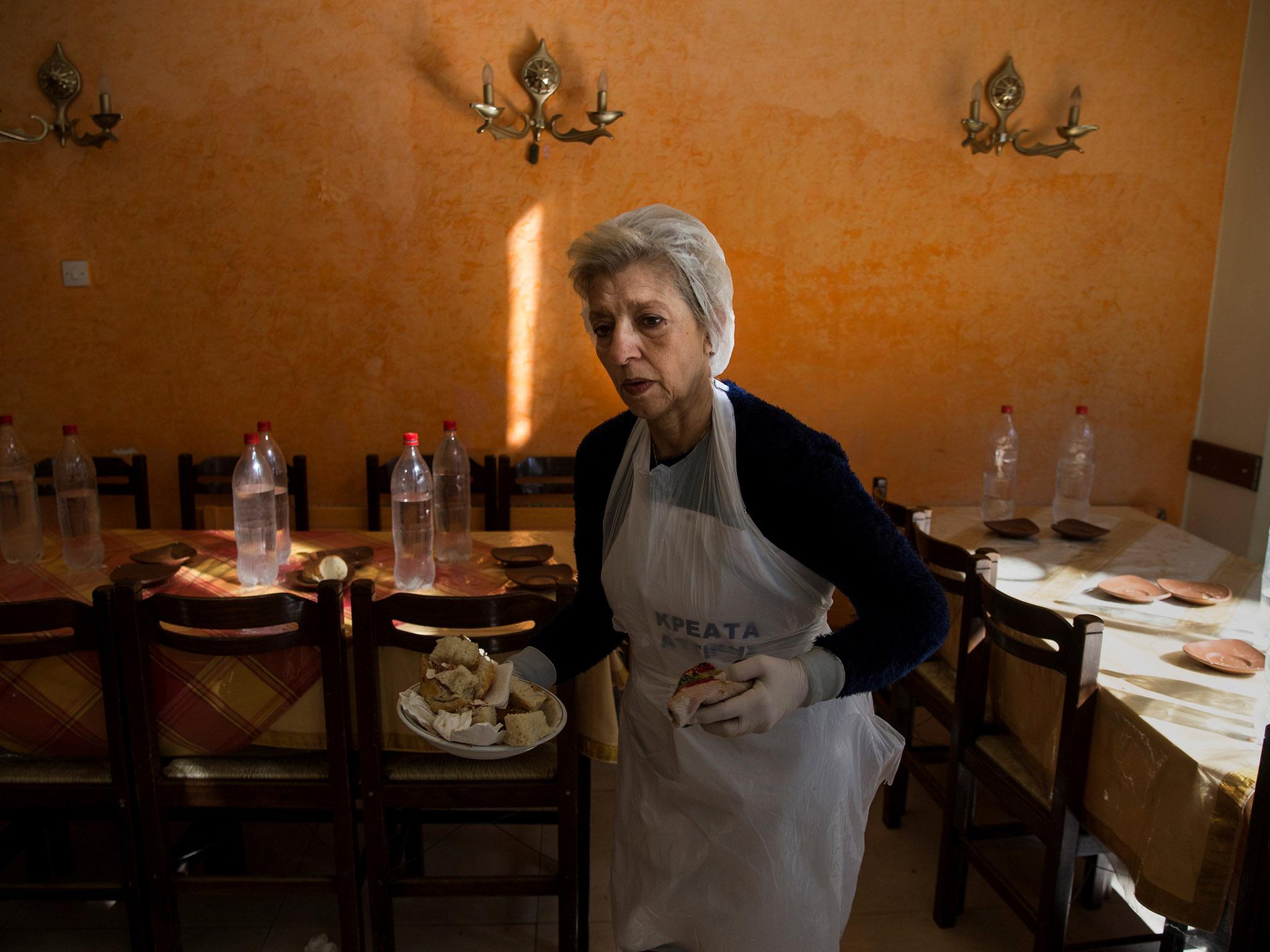
In return for volunteering, Agkisalaki receives handouts from the soup kitchen which she shares among her unemployed daughter and her son. “We're vegetating,” she said between setting a long wooden table for the next meal of bean soup, bread, an egg, a slice of pizza and an apple. “We just exist. Most Greeks just exist.”
Evangelia Konsta, who oversees the centre and whose business supplies the meat, said the number of people eating at the soup kitchen has more than doubled in two years and the church often also helps cover people's electricity or water bills too. “Things are getting worse, they're not getting better and that's reflected in people's needs,” Konsta said. “There are people who haven't even got one euro.”
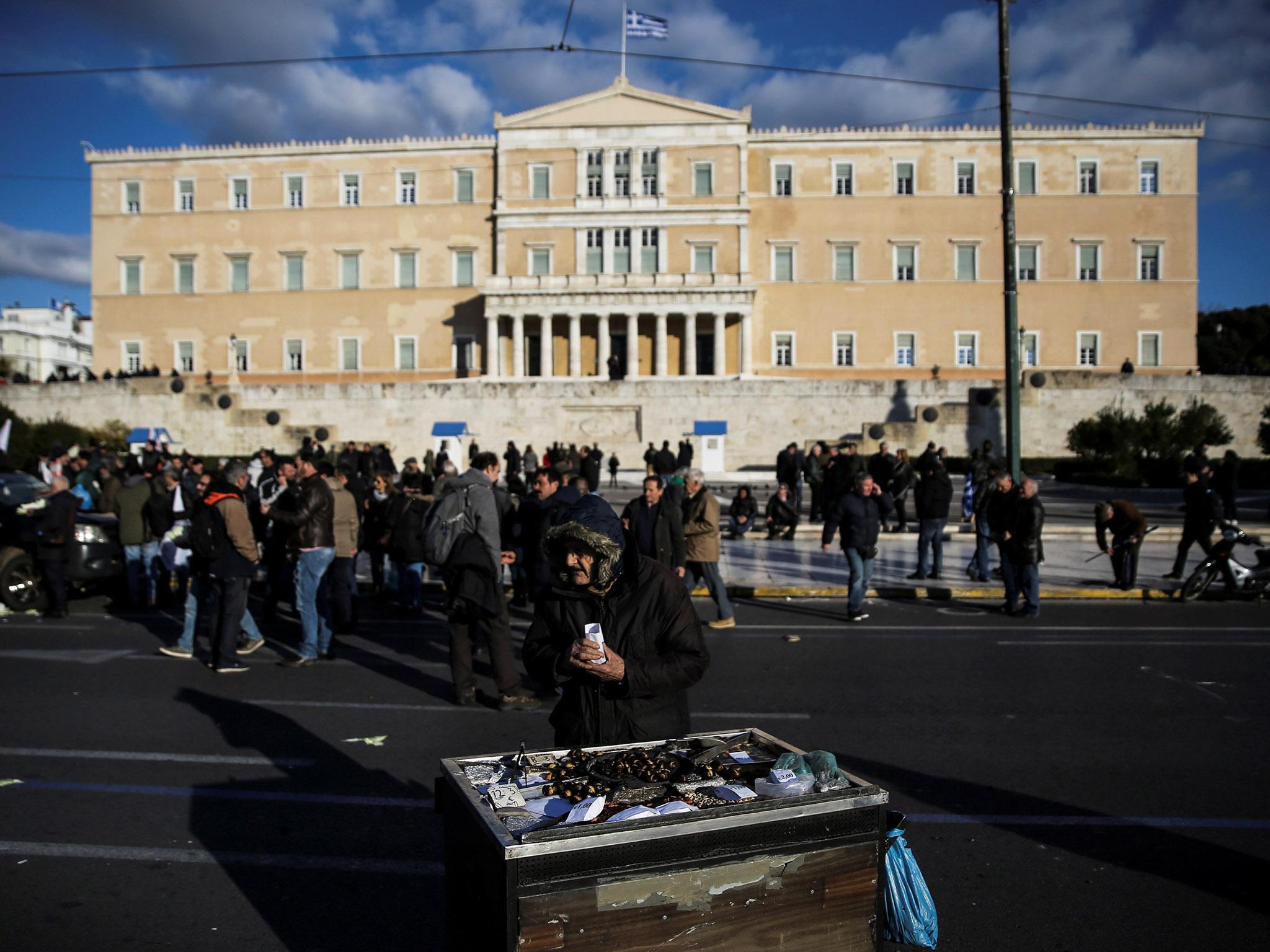
Across Athens, the number of Greeks sleeping rough is a testament to that. Volunteers drive a van with two washing machines and two dryers to neighbourhoods where the homeless gather to help them clean up. “You see the same faces, but also new ones,” said Fanis Tsonas, co-founder of the Ithaca mobile laundry, as destitute men and women brought bags of laundry. Few are hopeful of better days. “I don't think there's one person who's not afraid of the future,” said Dimitra, the pensioner, clutching her plastic bag of rationed goods.
Reuters
Join our commenting forum
Join thought-provoking conversations, follow other Independent readers and see their replies
Comments